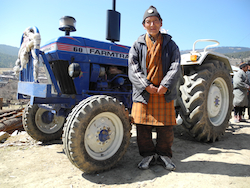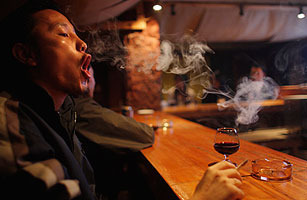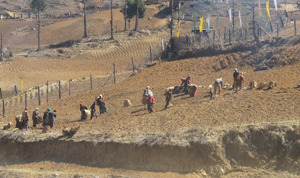Lisa Napoli's Blog, page 58
April 12, 2011
Boon in tourists for Bhutan
and the Tourism Council crunched the numbers:
Excerpt:
?A total of 27,020 dollar paying tourists flew into the country last year, increasing the arrivals by 15 percent, the same percent decline the industry experienced in 2009 from the global recession.
Tourist arrivals of 2010 appears to be the second highest in the last decade.
The highest number of tourist arrivals so far was in 2008, with 27,636 tourist arrivals.
From the arrivals last year, Bhutan earned a royalty of more than USD 11.5M, which is roughly more than Nu 50,31,42620.
Revenue from visa fees alone amounted to USD 540,900.
The country, however, saw 40,873 "high-end tourists" visiting the country last year, including regional tourists as well as those coming for conferences and business.
Tourism council of Bhutan officials said they far exceeded the target of 35,000 tourists for the year. It also defines tourists as people who "travel to and stay in places outside their usual environment for more than 24 hours and not more than one consecutive year for leisure, business and other purposes."








The library and the tractor, united
Ura READ Center Starts Tractor Rental Business
Opened in May 2010, the ASSP Community Library and Resource Center in Ura, Bhutan has started acommunity-run tractor rental business to generate income for the center. After assessing five business proposals submitted by the community, the tractor rental business was selected for its market feasibility and need in the community. For a fee, local farmers hire the tractor from the committee to till their land. The tractor committee consists of 14 members from the village and is responsible for running and maintaining the business.Ura village is a potato growing community and has over 50 acres of land under cultivation. With this much-needed service, villagers can now tend to their fields without the large investment of buying their own tractor or hiring at a higher rate from the nearest town of Chamkhar, 1.5 hours away by public transportation. Mr. Tshering Tashi, a member of the tractor committee, said it has been his dream to buy and operate a tractor but was unable to do so due to finances. Now he intends to work hard, support the READ Center and make his family and community proud. "Everyday, the community hires the tractor for tilling land, collecting firewood, manure and some odd jobs," says Mr. Tashi.








Do Bhutan's anti-smoking laws go too far?
Nice write-up by a Bhutanese journalist on the tough new anti-tobacco laws there, the imprisonment of a monk for breaking them, and the ensuing protests among the people against them. Like the ban on plastic bags, enforcement of the long-standing ban on tobacco had been kind of squishy–until the new rules enacted recently:
Excerpt:
"In 2010, six years later, embarrassed by the failure of the ban and the pressure to live up to the smoke-free image that it created in the eyes of the world, the newly democratic Bhutanese parliament passed the more stringent act that is in place today. It has, however, not gone down well with many smokers who have called the law, among many things, a blatant infringement of personal freedom and an attack on democracy. "This is an unjust, undemocratic and preposterous ban," says Kinley Shering, a Bhutanese media consultant who is also a smoker. Shering started a citizen's movement to amend the bill on Facebook — an unusual show of dissent in this young democracy. Opposition Party Leader Tshering Tobgay says the tobacco control bill is "draconian" and "dangerous" and has called for monk Sonam Tshering to be freed."








April 11, 2011
Old age homes in Bhutan
This article in the Bhutan Observer asks: Are they in keeping with the GNH philosophy? Elders say they are an unfortunate necessity:
Excerpt:
"Lyonchhen said initiatives are being taken by various parties to cater to the needs of the aged people who are abandoned by their families in the GNH country because of rural-urban migration.
Old people in the country, Lyonchhen said, are abandoned 'not in a very big way, but the trend is beginning to emerge; the number is enough for us to worry.'
Lyonchhen added that the solution must be one whereby, as in the past, the aged will continue to be the object of reverence and respect within the family. He said the government will make it worthwhile, not only socially and emotionally, but even financially for families to look after their aged folks.
Meanwhile, there are plans to establish another old age home in Bidung in Trashigang. Speaker Jigme Tshultrim said the new home will take in old people from all parts of Bhutan. He said, "This has become a necessity in view of GNH."
One of the mandates of the recently registered civil society organisation called Royal Society for Senior Citizens (RSSC) is opening old age homes. Pema Tenzin, the vice president of the organisation, said old age homes are necessary for people without siblings and family members.
Opposition Leader Tshering Tobgay said that, if old age homes give the senior citizens a sense of dignity and security in their final years, he fully supports the idea. But he asked why old age homes are needed in the first place. He asked, "Why don't our senior citizens have homes? Are our communities failing? Are we abandoning our parents? If so, why? Is it urbanization? Or are our values declining?""








Road to Lunana
If you watch this  about the installation of democracy in Bhutan, you'll not only learn about that fascinating subject, but you'll see magnificent scenery and architecture as well, and get to armchair travel to a part of the country you're likely never to see.
about the installation of democracy in Bhutan, you'll not only learn about that fascinating subject, but you'll see magnificent scenery and architecture as well, and get to armchair travel to a part of the country you're likely never to see.
Love hearing the beautiful sound of Dzongkha being spoken, too.








April 10, 2011
Books to Bhutan
Have some books you want to clear off your shelves? If you are going to Bhutan, bring them, as many friends i've directed recently do. (Thanks, Jonathan–whose family brought about 25 books with them on their recent visit.)
If you are not going and can't route your guide to the public library on Norzim Lam for ten minutes, then, consider sending them.
For $50 you can use a pre-paid box at the US Postal Service and send 20 pounds to: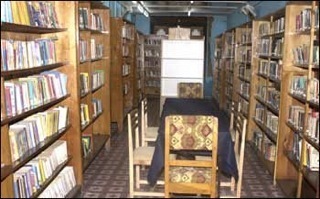
Jigme Dorji Wangchuck Public Library, Ms. Tsewang Zam, Librarian, Post Box 295, Thimphu Bhutan. Postal code 00975.
Some of you may know that I've been working with friends to raise money for the READglobal initiative in Bhutan. More information at: www.bookstobhutan.com Very important!
But if you don't want to or can't give money, and you have books, and $50, here's a way you can help. Every book makes a difference. This place doesn't have a big budget and every book that comes into the library helps.








Books to Bhutan
Have some books you want to clear off your shelves? If you are going to Bhutan, bring them, as many friends i've directed recently do. (Thanks, Jonathan–whose family brought about 25 books with them on their recent visit.)
If you are not going and can't route your guide to the public library on Norzim Lam for ten minutes, then, consider sending them.
For $50 you can use a pre-paid box at the US Postal Service and send 20 pounds to: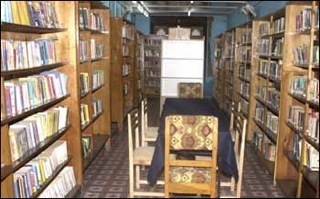
Jigme Dorji Wangchuck Public Library, Ms. Tsewang Zam, Librarian, Post Box 295, Thimphu Bhutan. Postal code 00975.
Some of you may know that I've been working with friends to raise money for the READglobal initiative in Bhutan. More information at: www.bookstobhutan.com Very important!
But if you don't want to or can't give money, and you have books, and $50, here's a way you can help. Every book makes a difference. This place doesn't have a big budget and every book that comes into the library helps.








#3goodthings
*the birds chirping around the swimming pool on Bunker Hill early in the AM and Dr. Dan surprising me
*making coffee for Ted's mother and watching her savor every sip as if it were fine champagne
*the seals on La Jolla beach and that wonderful woman explaining the crazy humans who are protesting and disturbing their presence there, with passion and wisdom and no anger (although you knew she knows they're selfish creeps)
#3goodthings








This is your brain on meditation
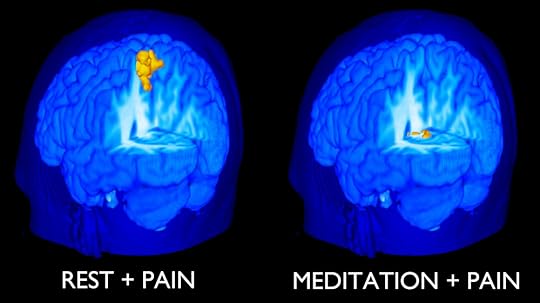
From the NPR health blog, the latest study to show the benefits of meditation, in this case if the brain's owner is experiencing pain. (And if the idea of meditation scares you, just substitute the word "sitting still and being quiet and not doing anything."
EXCERPT
"Now researchers at Wake Forest Baptist Medical Center have found you don't have to be a lifelong Buddhist monk to pull it off. Novices were able to tame pain after just a few training sessions.
Sounds a bit mystical, we know, but researchers using a special type of brain imaging were also able to see changes in the brain activity of newbies. Their conclusion? "A little over an hour of meditation training can dramatically reduce both the experience of pain and pain-related brain activation," Fadel Zeidan, a neuroscientist and the study's lead author, tells Shots. That finding's a first, Zeidan says.
In the study, a small group of healthy medical students attended four 20-minute training sessions on "mindfulness meditation" — a technique adapted from a Tibetan Buddhist form of meditation called samatha.It's all about acknowledging and letting go of distraction.
"You are trying to sustain attention in the present moment — everything is momentary so you don't need to react," Zeidan explains. "What that does healthwise is it reduces the stress response. The feeling of pain is a very blatant distraction."









